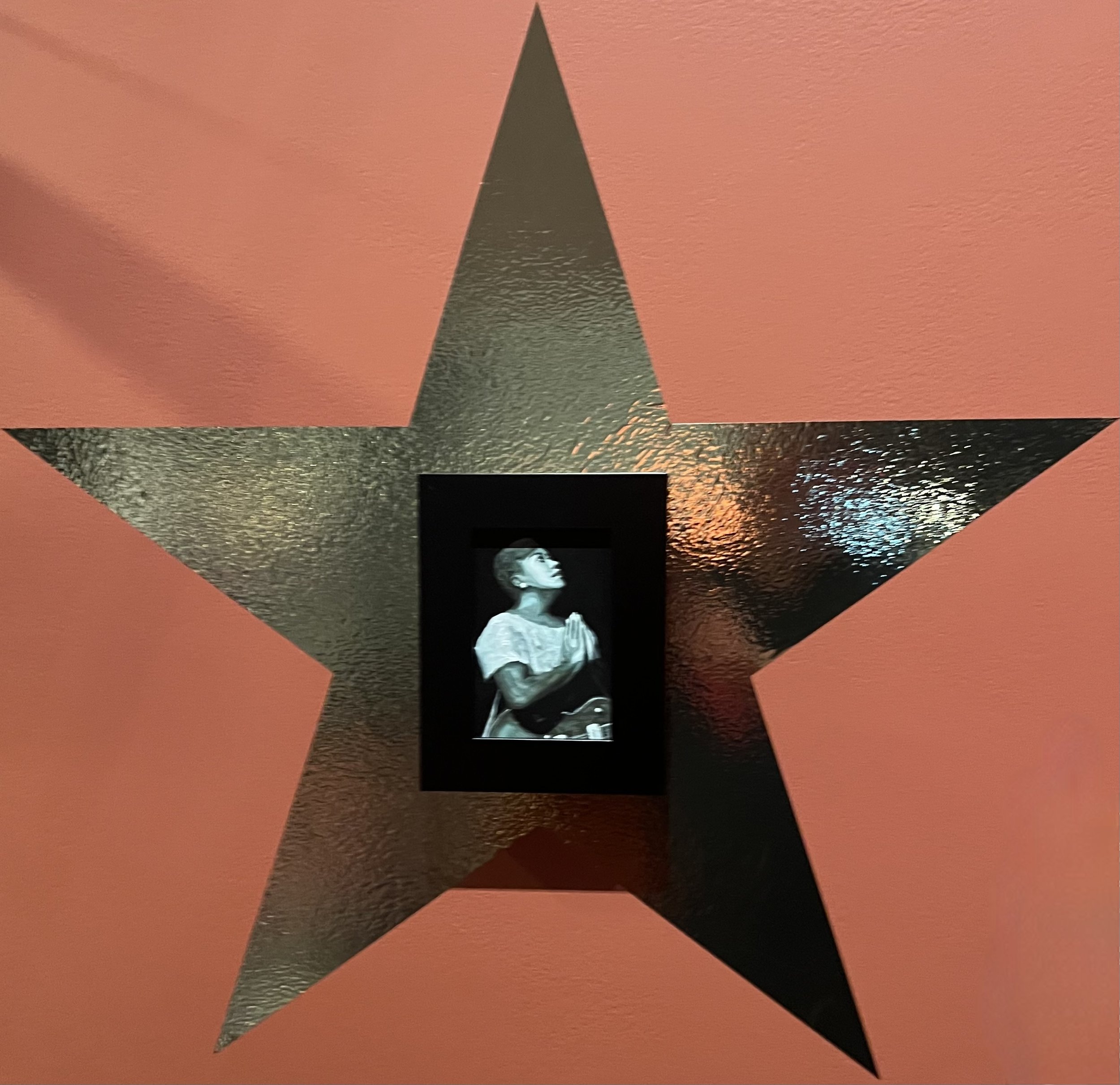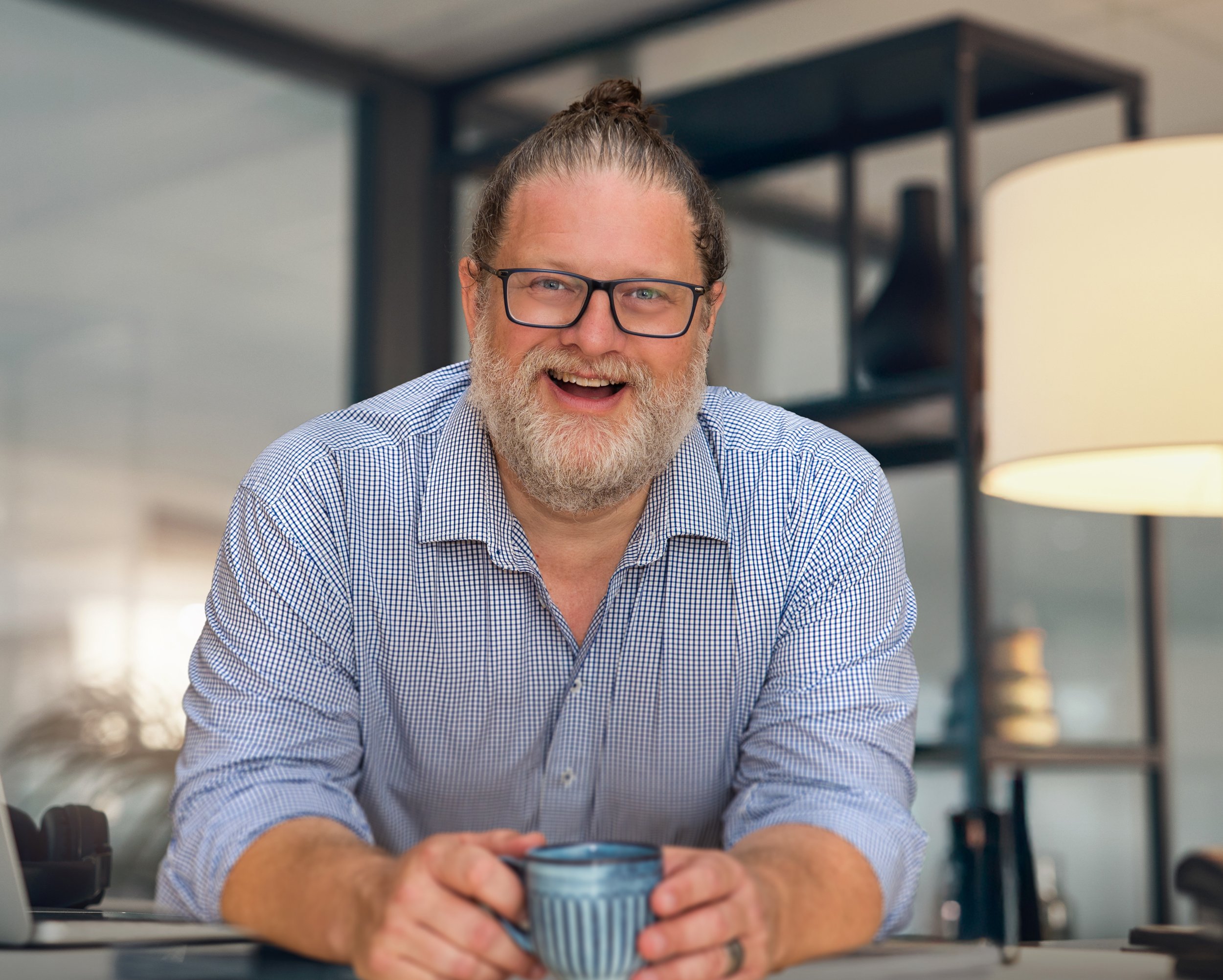I think we need hope
I struggle. In the chaos of today’s relentless, high-speed news cycle—designed to flood our attention and demand instant responses—I often find myself caught in the current. I feel... insignificant. There’s this whisper of doubt, quietly eroding my sense of self, telling me that I won’t withstand the storm. And in those moments, I know I need to find my lifelines to keep going. For me, one of those lifelines is hope. Hope, to me, is the conscious decision to believe—sometimes even beyond what the evidence shows—that our actions, our efforts, our lives... they matter.
But, being someone who values evidence, this is where I get stuck. The challenges we face as a society often seem too entrenched, too massive, too far beyond my ability to influence. And in these moments, it’s easy to fall into the temptation of ‘escaping’—to disconnect, to check out, to sink into the comfort of TV shows where heroes win, the good guys triumph, and the world is divided into clear, simple right and wrong. For a moment, I can pretend that it’s all okay—that I’m okay, that the world will be okay, and I don’t need to care or try to change anything.
And if I’m honest, I do this more than I’d like to admit. I justify it, calling it a "healthy outlet"—just like how dessert and red wine might sit at the top of the food pyramid: enjoyable in moderation but best kept as an occasional indulgence.
But my "moderate intake" of these distractions has grown over the past few months. And when I realized this, I knew it was time to reset. I forced myself to return to a more skillful way of rebuilding hope. I turned to my "friends on the shelf"—the authors, thinkers, and artists who have gone before me, who’ve endured far more than I ever have, and somehow managed to make a difference. Their stories remind me of the power of resilience, insight, and purpose.
This post is about three of those remarkable individuals. They come from different backgrounds, different times, and different contexts. But each one’s story has inspired me, and I hope it will inspire you too. Their journeys remind us to reconnect with our best selves and, in doing so, make a difference wherever we are.
The first individual who has profoundly inspired me is the author of a book that, in 1991, the American Library of Congress named one of the top 10 most influential books of all time. The author? Viktor Frankl. The book? Man’s Search for Meaning. I’ve written more about my personal experience with this transformative work in my blog post here (Man’s Search for Meaning).
Frankl, an Austrian psychiatrist and Holocaust survivor, wrote about the unimaginable horrors he endured in the concentration camps and the insights he gleaned from that direct experience. One of his central conclusions was that the primary motivating force for humans is the search for meaning in life. He found that those who could find or create meaning, even in the most devastating circumstances, were better equipped to endure and survive hardships.
What truly moved me, and continues to inspire me, was one of Frankl’s insights:
“Everything can be taken from a man but one thing: the last of the human freedoms - to choose one’s attitude in any given set of circumstances, to choose one’s own way. ”
Frankl, having survived the Holocaust and endured the profound loss of his father, mother, brother, and wife, returned to his work after the war with remarkable resilience. Despite unimaginable grief, he continued to develop his practice, creating Logotherapy—a therapeutic approach centered around helping individuals discover purpose in their lives.
What inspires me most about Frankl’s story isn’t just the sheer magnitude of what he endured, but the fact that, even after such devastation, he still held onto a deep belief in the inherent goodness of the world and its potential for progress. His unwavering passion for helping others led him to give countless lectures and interviews, sharing his wisdom with the world. In one of his final television interviews, he spoke of self-transcendence—the idea that true fulfillment lies beyond the self, in service to others and to a greater cause. Frankl emphasized that this concept was not only accessible to us, but that we also have a responsibility to uphold freedom. He said:
“Freedom, however, is not the last word. Freedom is only part of the story and half of the truth... In fact, freedom is in danger of degenerating into mere arbitrariness unless it is lived in terms of responsibleness.”
The second soul who truly inspires me is a woman whose photographs I had seen before, but whose name and story were unfamiliar to me—until, one evening, weighed down by the heaviness of the world, I decided to watch a historical drama directed by Ellen Kuras and starring actor and producer Kate Winslet. The film? Lee.
Based on the 1985 biography The Lives of Lee Miller by her son, Antony Penrose, the movie left me transfixed. As I watched the story unfold, I couldn’t help but feel deeply moved by the narrative of this remarkable woman. Knowing that the story was true, witnessing the hardships she faced, and seeing the strength she embodied, was nothing short of inspiring. Lee Miller’s resilience and unwavering spirit in the face of adversity sparked something within me—reminding me of the immense power of the human will to endure and thrive.
Lee Miller was a New York City fashion model and aspiring photographer who, after relocating to London, secured a position with Vogue during WWII. There, she captured striking images of the British people enduring The Blitz. After watching Lee(starring Kate Winslet), I felt compelled to dive deeper into her extraordinary life. I found a presentation on YouTube by Antony Penrose, her son, where he shared intimate stories about her journey. It was nothing short of amazing—utterly inspiring to hear firsthand about the incredible woman behind the camera.
Lee Miller relentlessly fought for the opportunity to photograph from the front lines, but as the UK initially restricted women from serving near combat, she was denied that chance—at least until the Americans entered the war. When that happened, she was assigned as an official American war correspondent. Her early apprenticeship with the surrealist artist and photographer Man Ray honed her technical and artistic skills, which would later prove invaluable. Some of Miller’s photographs have become iconic representations of the horrors of war.
Her images powerfully document her passion for bearing witness to history. She captured the devastation of the concentration camps, Hitler’s private apartment on the night of his suicide, and scenes from the French Resistance. Each photograph is a testament to her unwavering commitment to inform the world of the grim realities of war.
After the war, Miller returned to Britain and struggled with severe episodes of clinical depression, likely a result of post-traumatic stress disorder. Despite these personal battles, Lee Miller was nothing short of extraordinary. Her courage, her unflinching dedication to documenting the atrocities of war, and her willingness to expose uncomfortable truths continue to inspire me. Her work reminds me that our individual efforts—no matter how small they may seem—can make a significant difference, even if they come at a personal cost. It’s a price worth paying.
The third person who has recently inspired me—yet whose story I had never encountered until I visited an incredible art exhibit at the Ballarat art gallery (in rural Australia) is the Grandmother of Rock ‘n’ Roll - Sister Loretta Tharpe.
in rural Australia—is none other than the Grandmother of Rock ‘n’ Roll, Sister Rosetta Tharpe.
The exhibit, titled Medieval to Metal, explored the history of stringed instruments through art, sculpture, video, and, of course, the instruments themselves. It featured everything from Picasso’s works to pieces by Woody Guthrie and even an arcade game of Guitar Hero. The exhibit brilliantly made the history of music come alive and feel relevant to me, but what truly stood out for me was an image of Sister Rosetta Tharpe, accompanied by a small sign that read:
“Sister Rosetta Tharpe is one of the most influential yet paradoxically least known guitarist of all time. Tharpe has been a victim of the so called ‘Matilda effect’. First described in 1870 by scientist Matilda Joslin Gage, it describes the tendency to attribute discoveries by women solely to their male colleagues. The first guitar heroine of rock & roll in the 1930’s and 1940’s, Tharpe’s heartfelt gosepl songs presented the music of her church to predominately white audiences alongside her roaring mastery of her trust Gibson Les Paul Custom. ”
My curiosity was immediately piqued, and I had to know more. That night, my wife and I watched a documentary on Sister Rosetta Tharpe that was both fascinating and deeply inspiring.
Tharpe’s music, a groundbreaking fusion of spiritual lyrics and electric guitar, had a profound influence on the early rock ‘n’ roll pioneers—artists like Little Richard, Chuck Berry, Elvis Presley, and Jerry Lee Lewis. She was the first to use heavy distortion in her playing, paving the way for the electric blues genre. Tharpe became an international sensation, with her guitar technique influencing the British blues movement in the 1960s. Yet, despite her immense talent and fame, as a Black woman, she still performed in racially segregated America. Even as a headliner, she was forced to sleep on tour buses and eat in back alleys, denied entry to the same restaurants where her white bandmates were welcomed.
Her story moved me profoundly. It reminded me that despite the harshest of obstacles, resilience and passion can carve a path to lasting impact. Tharpe’s journey gave me hope, a reminder that perseverance and belief in one's craft can transcend even the most daunting barriers.
I know that the world can often feel overwhelmed by ill will, chaos, and malevolent forces. But what gives me hope is knowing that there have always been—and still and always will be—humans across the globe who have faced unimaginable injustice and hardship. These are the ones who have fallen, only to rise again, and whose impact continues to resonate, often long after they’re gone. Their resilience and contributions are vital to the progress of humanity.
The idea of "saving the world" is, I think, often misunderstood. We tend to think of it as a singular, separate entity—the World—when in reality, each of us lives in a world shaped by our own narrative. Bitter people inhabit a world where everyone is hostile, and nothing is appreciated, so they 'take.' It’s a painful, dark place to exist. Yet, it’s the same physical world where grateful people live—people who see everything as a gift, which fuels their ability to give back and make a difference far beyond their own lives.
In short, don't lose hope, and don't doubt your ability to create positive change. Your existence matters, and your efforts, however small they may seem, have the potential to make the world around you a better place. Keep going, and keep believing that things can get better.
James







